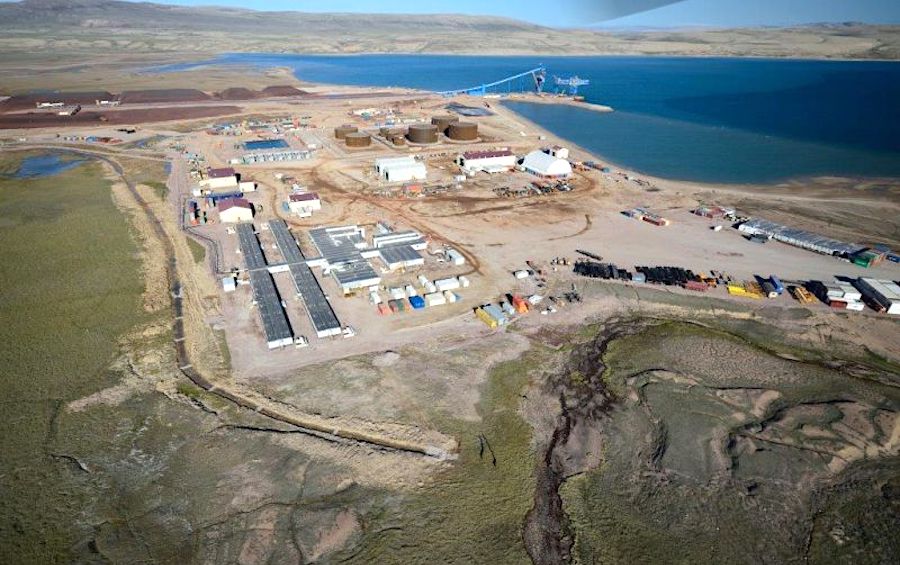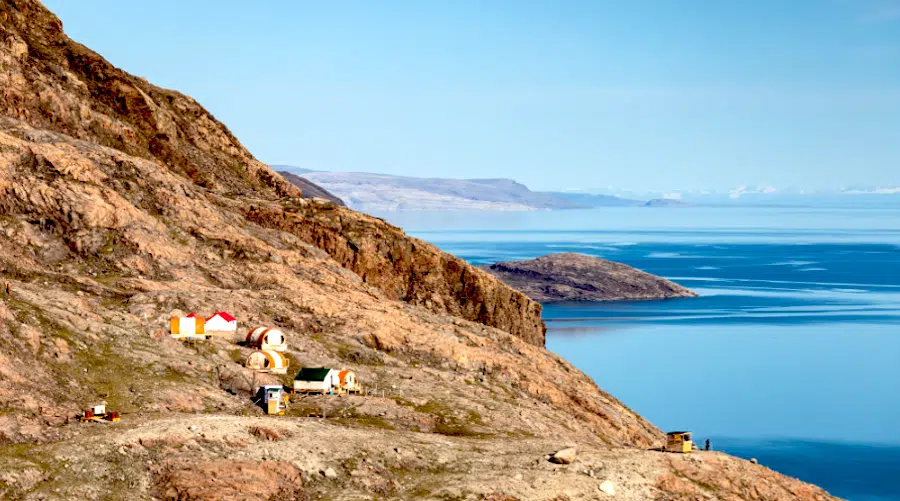Unionized workers at Baffinland Iron Mines’ Mary River iron ore operation on the northern tip of Baffin Island, in Canada’s territory of Nunavut, are urging the federal government to approve the company’s request for a shipping limit expansion.
After four years of consultations and deliberations, the Nunavut Impact Review Board (NIRB) rejected on May 13 Baffinland’s request to more than double output to 12 million tonnes a year and eventually reach 30 million tonnes annually on environmental grounds.
The board cited “significant adverse ecosystemic effects” on marine mammals such as narwhals, fish, caribou and other wildlife, which in turn could harm Inuit culture, as the main reason for the decision.
The International Union of Operating Engineers, Local 793 and International Union of Operating Engineers (IUOE), say allowing the expansion would be the only way to save the jobs of hundreds of skilled workers, many of whom live in Nunavut.
Baffinland, in which steel giant ArcelorMittal has a 28% stake, submitted last week a request for an emergency order from Northern Affairs Minister Dan Vandal to increase its 2022 shipping limit from 4.2 million tonnes to six million tonnes as an interim measure.
The mining company has said that if the interim measure is not approved, it will have to halt operations at Mary River once production reaches 4.2 million tonnes for the rest of the year. This would affect about 1,300 employees and more than 400 contract employees, the company has said.
In its report, the NIRB acknowledged the loss of economic benefits Phase 2 would cause to locals, which has been conservatively estimated at C$2.4 billion (about $1.9bn) based on the current size of the known mineral resource.
“Many residents in the affected communities also expressed the view that the potential positive socio-economic benefits of the proposal focus on financial benefits, while the negative socio-economic effects focus on effects on land use, harvesting, culture and food security that cannot be compensated with money,” NIRB said in the 441-page report.
Minister Vandal is currently reviewing the NIRB’s report and other studies and has until the first week of August to either side with the review board or the mining company.
Shipping limit in limbo
Communications between the company and the minister, according to local paper Nunatsiaq News, show does not have the authority to increase Baffinland’s shipping limit and had encourage the company to go through the NIRB for that.
Mary River, considered one of the world’s richest iron deposits, opened in 2015 and ships about six million tonnes of ore a year.
Current freight volumes have already had a “devastating” impact on the area’s narwhal population, the world’s densest, vice-chairperson of the Mittimatalik Hunters and Trappers Organization, Enookie Inuarak, said earlier this month in an emailed statement.
Narwhals are a type of whale with a long, spear-like tusk that protrudes from its head. The marine mammal is an important predator in Eclipse Sound and other Arctic waters, as well a major food source for Inuit in the region.

Last year, a group of hunters from Arctic Bay and Pond Inlet blocked access to the mine in protest of the company’s ice breaking practices due to their negative impacts on narwhals.
The company agreed to avoid ice breaking in spring, based on “the precautionary principle that is the foundation of our adaptive management plan,” Baffinland’s CEO said in a statement at the time.
If minister Vandal approves the expansion, Baffinland would send about 12 million tonnes of the 30 million tonnes via the North Railway to Milne Port. It also plans to build a second railway to Steensby Port, from which it intends to ship an additional 18 million tonnes of ore a year.




